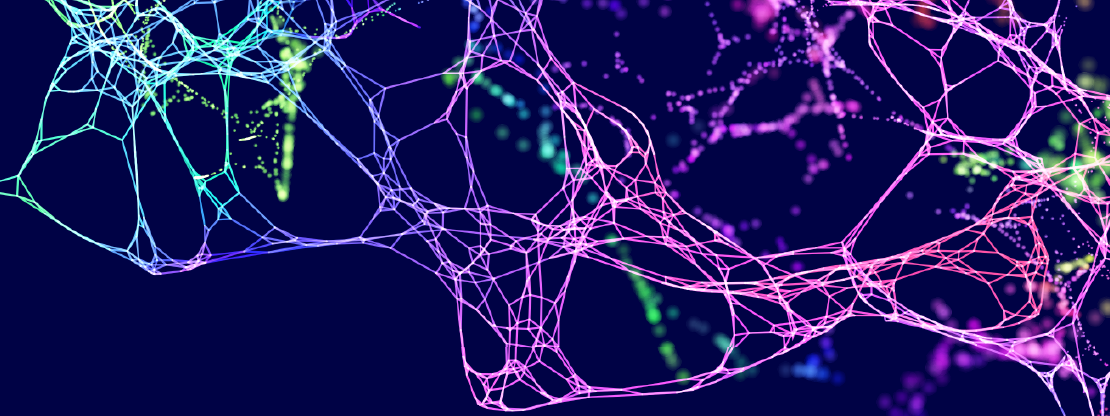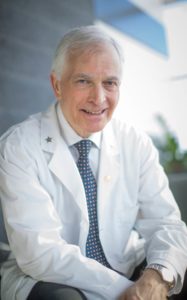The future of Parkinson’s research and treatment: A Q&A with Dr. Anthony E. Lang (Part 2)
April 20, 2022

Each year during our Grand Challenges in Parkinson’s Disease symposium, Van Andel Institute presents the Jay Van Andel Award for Outstanding Achievement in Parkinson’s Disease Research to a scientist or scientists whose work is transforming our understanding of Parkinson’s. This year, we’re pleased to honor Anthony E. Lang, O.C., M.D., RCP, FAAN, FCAHS, FRSC. Dr. Lang is one of the most highly cited researchers in the field of movement disorders. His groundbreaking, multifaceted research seeks to understand how movement disorders such as Parkinson’s begin, how they spread in the brain, and how these insights may be translated into the treatments that slow or stop disease progression — a feat not possible with existing therapeutic strategies.
This is the second in a two-part Q&A with Dr. Lang. Today’s interview highlights what a game changing treatment for Parkinson’s may look like and explores where we may be in the coming years.
Where do you see Parkinson’s research and treatment in the next five or 10 years?
Dr. Lang: I think we need it moving ahead on all fronts. We need to continue advancing disease-modifying therapies because we need something that changes the course of the disease. But we also know that there are many symptoms that don’t respond to the treatments we currently have available, most of which are dopamine-based. Many symptoms, however, aren’t related to dopamine, such as blood pressure problems, bladder problems and cognitive difficulties. We need to understand those symptoms better and find more effective treatments for them as well. We also need better therapies for behavioral symptoms, such as anxiety and hallucinations, as well as later-stage motor problems, such as freezing.
All these symptoms need effective treatments and, to get there, we need to understand the underlying mechanisms. To effectively treat every aspect of Parkinson’s, we need to proceed on all fronts.

What is the most exciting thing happening right now in Parkinson’s research?
Dr. Lang: I believe the greatest hope for diagnosis is the development of what are called seeding assays, which are tests to help us detect misfolded alpha-synuclein. We are seeing huge progress in these tests in skin, blood and spinal fluid. These techniques look like they are going to be game changers in terms of Parkinson’s diagnosis.
In your view, what might a future therapeutic approach look like?
Dr. Lang: It’s highly likely that Parkinson’s is not a single disorder or the result of a single process. It may be a very complex combination of different biological processes, and everyone might be a little bit different in that regard. With that in mind, I don’t think we’ll have a single diagnostic test or just one therapy. What we may need to do is be able to separate populations based on specific factors that contribute to their individual disease. You might then be able to say, “Ah yes, this person with this set of biological characteristics is a good candidate for this specific combination of medications.” This is the way cancer is treated, for example.
What would it mean for people with Parkinson’s if we could find a treatment to slow or stop progression, as well as a way to diagnose Parkinson’s in its early stages?
Dr. Lang: In neurodegenerative diseases, the earlier we can step in and introduce a neuroprotective treatment or a treatment that slows or stops progression, the greater the likelihood of success. In fact, if we could step in before people even develop tremor or stiffness and prevent the onset of the movement-related symptoms, wouldn’t that be wonderful?
In addition to being important for individual diagnosis, better tests for Parkinson’s could help us better identify people with early Parkinson’s versus other movement disorders and get them into clinical trials earlier. In the next few years, I think we will see a big shift in how we diagnose the disease.
This year’s Grand Challenges in Parkinson’s Disease scientific symposium and Rallying to the Challenge meeting for people with Parkinson’s, advocates and care partners will be held Sept. 28–29. For more information, please visit grandchallengesinpd.org.
